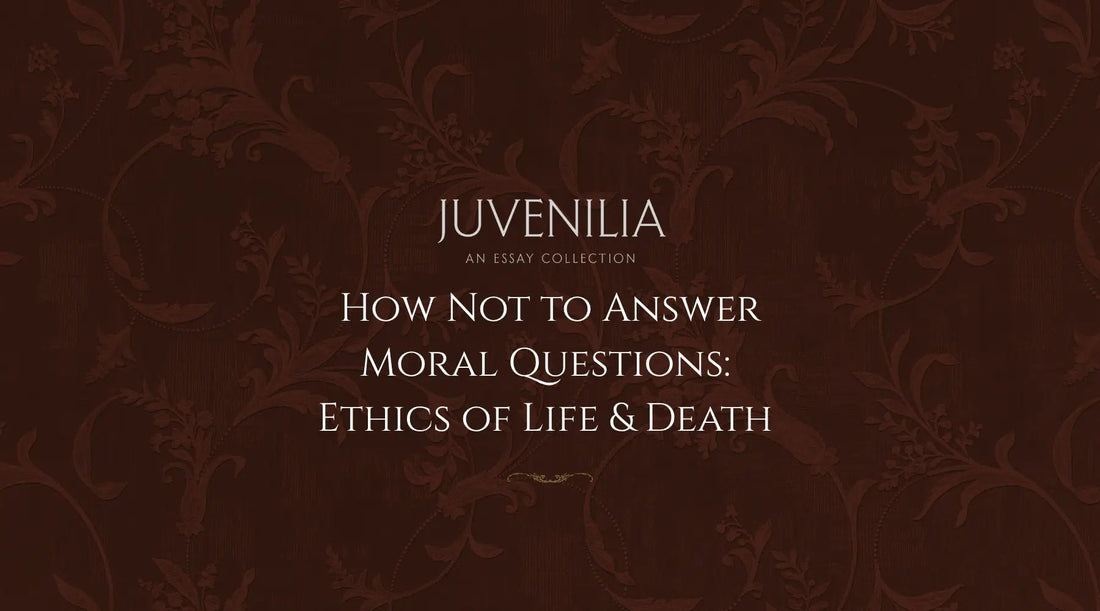
How Not to Answer Moral Questions: Ethics of Life & Death
In the book of Genesis, God tests Abraham by commanding him to sacrifice his son Isaac. Obediently, Abraham binds Isaac, lays him on an altar, and raises his knife before God calls off the sacrifice at the last possible moment. What would Regan say about Abraham's willingness to kill his son? Is that willingness morally justifiable? What do you think?
Regan establishes that belief does not dictate truth, and further, Regan argues that moral judgements are not the same as preferences. In Regan’s section on appealing to a moral authority, he reveals a fallacy in appealing to religious belief for moral judgement. There needs to be a basis that all people can understand and learn independent of God as He is not empirical.
As there is no way to establish a one-to-one conversation with the big man upstairs, we are left only with God’s word written by man over 2000 years ago in another language, rewritten several times with an old testament, a new testament, and multiple versions from King James to the New International... (which ones are right—if any—and how can you tell?)
There is no way to be certain you even are doing God’s will simply from the fact that apparently either God has had a change of heart several times throughout history (which is problematic) or that humans have simply taken the liberty to change God’s words (also problematic).
It is either that morality is not a static entity (which it should be) or it is like a game of telephone where through word of mouth the original message is simply lost through translation and has nothing to do with God’s will anymore anyway. However, for argument’s sake, let us imagine that the bible was written as God intended.
There is still yet another problem. There remains the question of how to interpret God’s words as it is very vague and results in people coming to drastically different conclusions.
I don’t think Regan would agree that Abraham made an informed decision. In fact, I believe it was misguided, and Abraham had misplaced faith in deciding his God more important than his flesh and blood. If God said, “On Shrove Tuesday you must sacrifice 12 virgins in a volcano,” would that mean that is the moral thing to do? I think not. We have no way of knowing why God says what is moral is moral and why what is immoral is immoral, and therefore, we cannot rely on God for all the answers.
To bring this full circle, belief does not dictate truth. Regan gives the example of a plumber. A plumber is not a plumber because he says so; he is a plumber because he can do the job of a plumber. It is backed up empirically. He has the expertise in that field, and you can trust what he says. You would not trust a plumber to be your heart surgeon, however, so why should you trust in something/someone who may not exist, or be who you think they are?
I don’t think it was morally justifiable at all. There was no rhyme or reason to it. If God exists and God is all powerful and all-knowing, then he can strike anyone down when he chooses for the reasons he believes are fit. That is not our call, and to assume god-like powers because one thinks God is speaking to them.
This is not to say that the justice system is in any way perfect, but it’s more reliable than a deity speaking to you about killing on his behalf (or whatever he demands). Morality is a difficult topic because whose say matters? I think the law is a better judge because the people are by and large the law. Some laws are unfair, but people are unfair, so I suppose you can’t expect much more. I think it’s better that we’re all unsatisfied rather than have polarizing beliefs where some are sated, and others are not. There’s fairness in everyone being partially dissatisfied, I think.
Cahn, Steven M., editor. Exploring Ethics: An Introductory Anthology. 4th ed., Oxford University Press, 2017.
